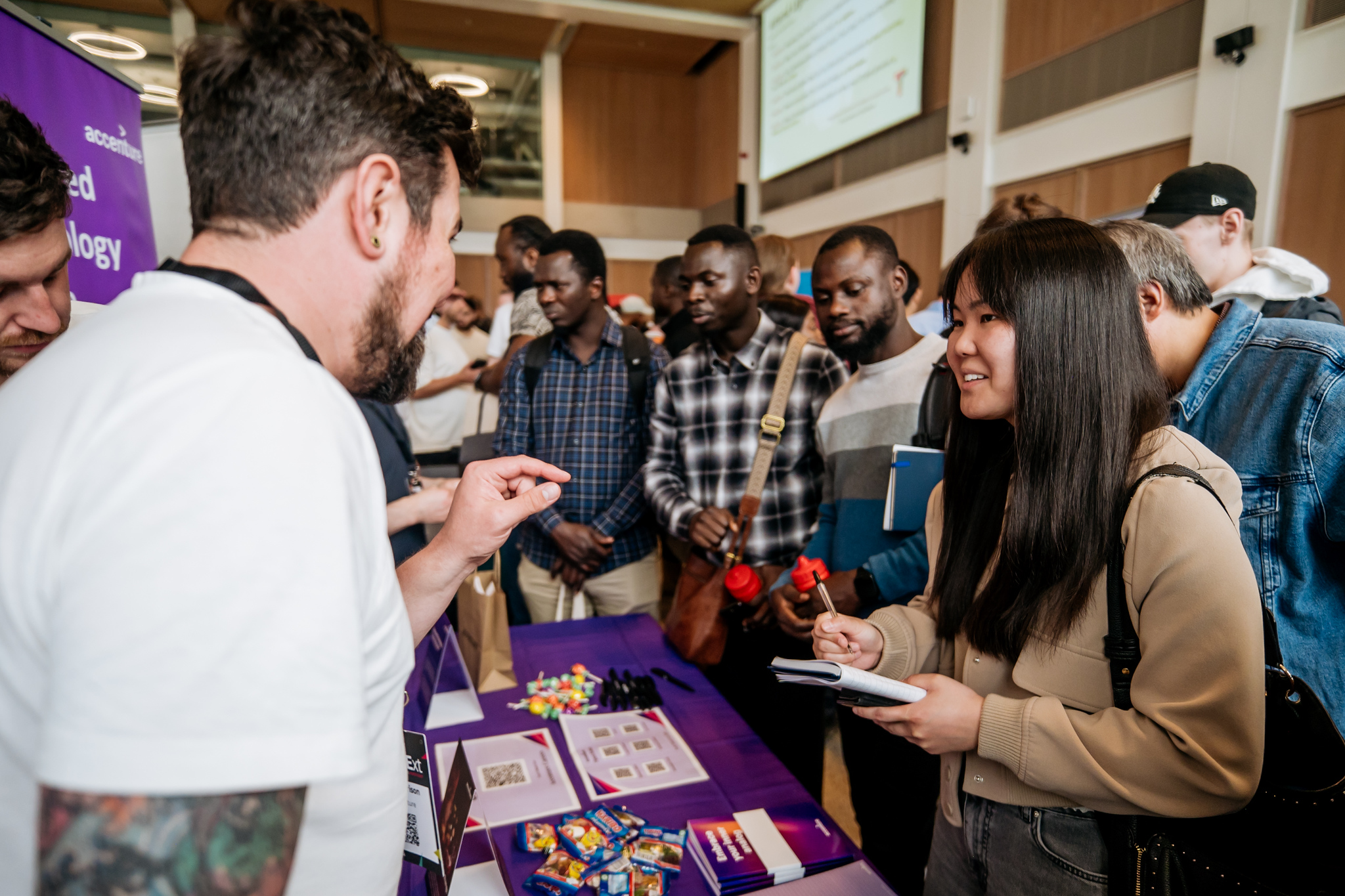Members of Digital Catapult and the Digital Catapult North East Tees Valley held a workshop on the 27th January for to learn from North East based businesses.
The purpose of the workshop was to gather research, and gain insights into how companies can leverage their existing services and combine them with the innovative capabilities of metaverse and web3 technologies, and barriers that they face when working within innovative technologies. The workshop brought together business leaders working within the technology sector in diverse ways - from those developing and using immersive technology, data scientists, and even creative writing.
What is the Metaverse?
A often debated concept, some refer to the metaverse as virtual world or universe that exists as a computer-generated simulation. It is a shared, interactive space where users can interact with each other and digital content using virtual reality (VR) or augmented reality (AR) technologies.
The concept of the metaverse has been around for several decades now. It was first coined in Neal Stephenson’s Snow Crash in 1992. In the metaverse, users can create their own avatars and participate in a variety of activities such as socialising, gaming and shopping.
What is Web3?
Web3 refers to the next generation of the internet, also known as the decentralised web. Unlike the current web (Web2), which is primarily controlled by a few large tech companies, the decentralised web is built on a network of computers and devices that work together to create a more open, secure, and transparent online experience.
Web3 is based on blockchain technology, which is a distributed ledger system that allows for secure, transparent, and tamper-proof transactions and interactions. In the context of the web, this means that Web3applications can operate without the need for intermediaries, such as social media platforms or payment processors, and without the risks associated with centralised systems, such as data breaches or censorship.
The goal of Web3 is to create a more equitable and accessible online experience, where users have greater control over their data and online identity, and where the rules of the web are established by consensus rather than by a few powerful entities. Companies and developers a real ready exploring how they can build applications that take advantage of Web3's decentralised architecture to create new products, services, and experiences for users.
What Does This Mean for Businesses?
A new generation of decentralised, blockchain-based platforms are changing the way we think about and interact within the internet, as we explore immersive landscapes. Unlike traditional web 2.0platforms, which are centrally controlled and often monetised through advertising and data collection, web 3 platforms are designed to be open, transparent, and secure.
Workshop Delivery
The workshop kicked off with a thought-provoking exercise where participants were asked to jot down their initial reactions to the metaverse and Web3. This exercise sparked a fascinating discourse, with a mix of acceptance and scepticism in the room. Words like "connectivity" and "visual expectations" were tossed around, as participants hoped that the hype surrounding the metaverse would live up to their expectations.
Meanwhile, discussions about Web3 were centred around the concept of openness and decentralisation, with a strong focus on the game-changing potential it holds for the future of the internet.
This exercise was the perfect icebreaker, setting the stage for a lively and insightful workshop exploring the opportunities and challenges of bringing metaverse and Web3 technologies to businesses in the North East.
The second part of the workshop was a hands-on exploration of the potential for businesses in the North East to operate in the metaverse and Web3. Participants were taken through a step-by-step guide to assess their business's capabilities in these emerging technologies. The participants took part in a brainstorming exercise where they were invited to explore questions, concerns, and new business opportunities per each section. The exercise was designed to kickstart thinking about how the technologies can be integrated into their business and services.
The metaverse was broken down into five main categories: Immersive and Social, User-Centred, Networked and Data-Driven, Content, and Asset and Service-Driven. Each of these categories had its own sub-categories, such as Virtual Worlds, Cloud Rendering, Digital Records, and Content Creation, to help businesses understand the
The Web3 aspect of the workshop was equally comprehensive, with a breakdown of the key characteristics of this new type of internet. Web3 was analysed in terms of its decentralisation and security, public and permissionless nature, and the creation of value through digital assets and trust less systems.
By combining these two sections, the metaverse and Web3,participants were able to see the potential for convergence between these technologies. For example, the idea of an ATM that uses cryptocurrency within the metaverse, highlighting the possibilities that arise when these two technologies are combined.
Through this exercise, businesses were able to gain abetter understanding of the opportunities and benefits that Web3 can bring to their operations, and how they can leverage these technologies to create new and innovative products and services. While the workshop was filled with exciting possibilities and potential, participants were also made aware of the barriers that exist for the convergence of metaverse and Web3 technologies. These barriers include the existing partnerships and client relationships of businesses, which may not be ready or able to adapt to the changes brought about by these technologies.
Conclusion
Overall, the workshop was a valuable experience for businesses in the North East, offering insights, guidance, and inspiration for how they can take advantage of the emerging trends in metaverse and Web3 technologies. By understanding the opportunities and challenges, they can be ready to position themselves for success in this rapidly evolving landscape.

.png)






